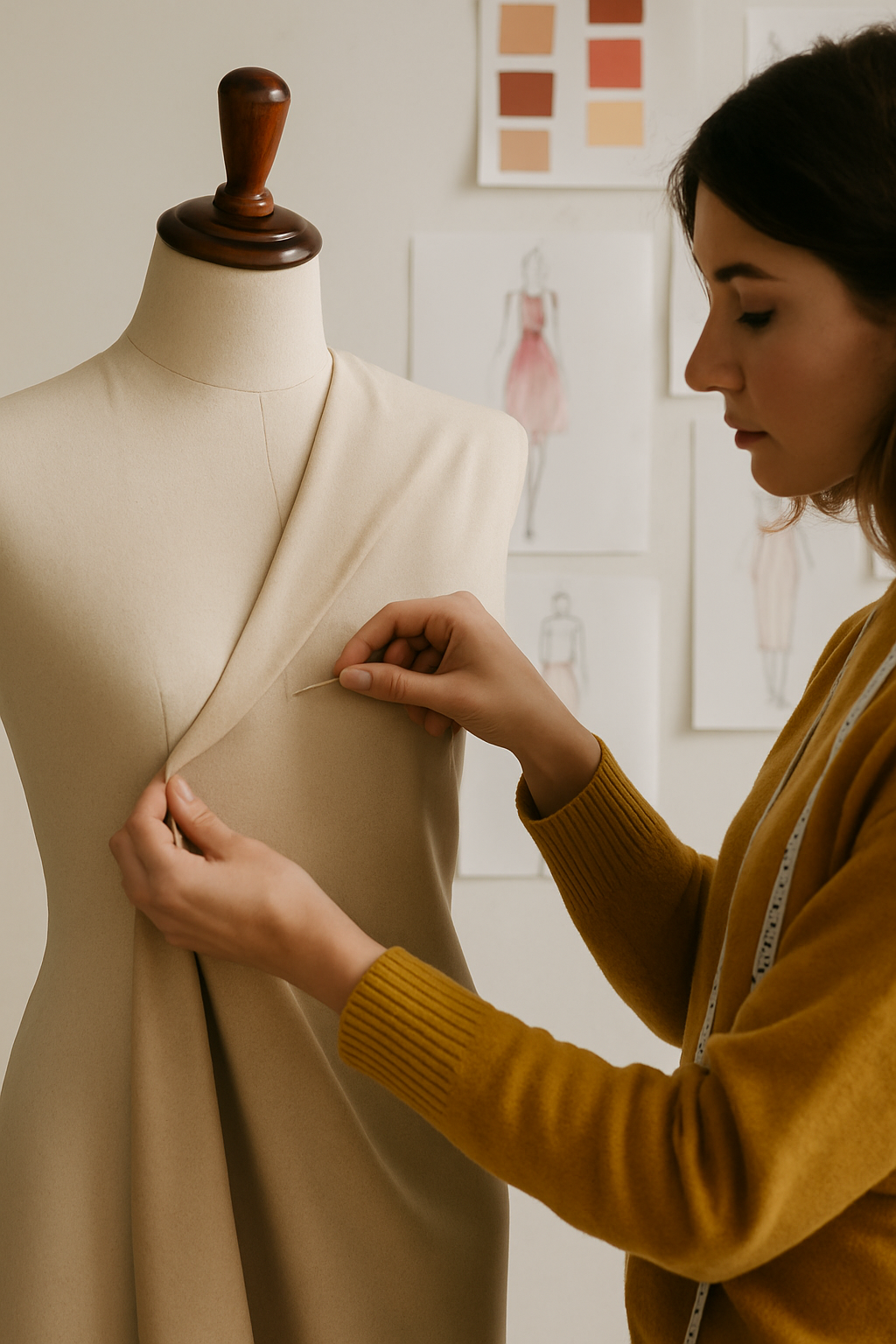In the 1980s, more than 738,000 people were employed in the UK’s fashion and textile industries. Fast forward to today, and that number has plummeted to just 88,000.
Sustainable fashion is important because it’s sparking the revival of the U.K. 's fashion industry. As the global economy moves away from cheaper shores and returns back home, a new generation of creative, skilled, and sustainably minded professionals are needed to deliver the goods.
“Offshoring may have met yesterday’s demand, but the fashion industry of tomorrow will be local, ethical, and digital.”
Sophie Jones, Tutor and Course Development Lead, British Academy of Fashion Design
What is sustainable fashion?
Also referred to as ethical fashion, sustainable fashion refers to the prioritization of environmental responsibility and social equity at every stage of the supply chain in the fashion industry, from design and material sourcing to production, distribution, and consumption.
Sustainable fashion in the U.K.
Sustainable fashion in the U.K. is a growing movement driven by increasing consumer awareness of the environmental impact the fashion industry has (and continues to have).
This has seen a shift for the fashion and textile industry towards local production models: zero-waste fashion, made-to-order systems, and ethical transparency. It’s a system that requires highly trained professionals, the opposite of fast fashion and mass production.
As the UK Fashion and Textile Association notes:
“Sustainable manufacturing requires not only innovation but also a skilled workforce, combining craftsmanship with digital capabilities.”
— (UKFT Circular Manufacturing Report, 2023)
Sustainable fashion brands in the U.K.
Several British brands are already moving in this direction:
-
Community Clothing (Blackburn) operates a co-operative of over 30 UK mills, promoting regional employment and ethical basics.
-
Sunspel (Derbyshire) continues garment production in its own UK factory since the 1800s, ensuring full supply-chain visibility.
-
Johnstons of Elgin (Scotland) remains a vertically integrated B Corp, blending heritage with modern apprenticeships.
These brands are showing the rest of the fashion industry how important ethical fashion is; it means supporting your local economy, building credibility and looking towards a sustainable fashion future.
CC
Community Clothing
Fashion & Textiles Higher National Diploma
The British Academy of Fashion Design has launched a brand-new Higher National Diploma (HND) in Fashion & Textiles, created specifically to meet the skills shortage in UK fashion and prepare learners for the next decade of sustainable and tech-driven growth.
Designed in partnership with Pearson and delivered online with options to add classroom-based or live online classes, this course is as accessible as it is future-focused. Over 2,400 hours of structured learning, students will master:
-
Sustainable garment construction
-
Textile innovation and fabric science
-
3D design, CAD, and digital fashion
-
Trend forecasting and branding
-
Ethical manufacturing and entrepreneurship
Students will build professional portfolios, complete a one-month work placement, and be trained to enter or reshape the industry as designers, technicians, brand founders, and sustainability leaders.
“Our HND in Fashion and Textiles provides exactly the capabilities needed to drive the next chapter of UK fashion—sustainable, smart, and skill-rich.”
Jane Gregory, CEO, British Academy of Fashion Design
Build your fashion career in a sustainable way at the British Academy of Fashion Design
In recent years, cracks have emerged in the status quo of fashion design; global supply chains proved fragile during Brexit and the pandemic, legislation is tightening and consumers are demanding sustainable, traceable fashion.
For aspiring designers and fashion entrepreneurs, this is a powerful moment to step into the industry. Not just as creatives, but as leaders of a new movement; ethical, climate-aware, technologically fluent, and proud of British design heritage.
Do you want to find out if this is you? Take a look at our courses (home study, live online, and classroom based) to see for yourself.
FAQ
What is textile innovation?
Textile innovation is the creation of new fabrics, materials, or processes that make textiles more sustainable, functional, or high-performing. This may relate to the functional characteristics of fibres, yarns, fabrics and manufacturing processes.
What is the future of sustainable fashion?
The future of sustainable fashion, especially in the U.K., lies in eco-friendly materials, circular design (reuse, repair, recycle), and technology-driven solutions that reduce waste and emissions. Brands are expected to prioritize transparency, ethical production, and innovation to meet growing consumer demand for responsible fashion.
What is trend forecasting?
Trend forecasting is the practice of predicting future styles, colors, materials, and consumer preferences in fashion. It helps brands plan designs and collections by anticipating what will be popular in upcoming seasons.

